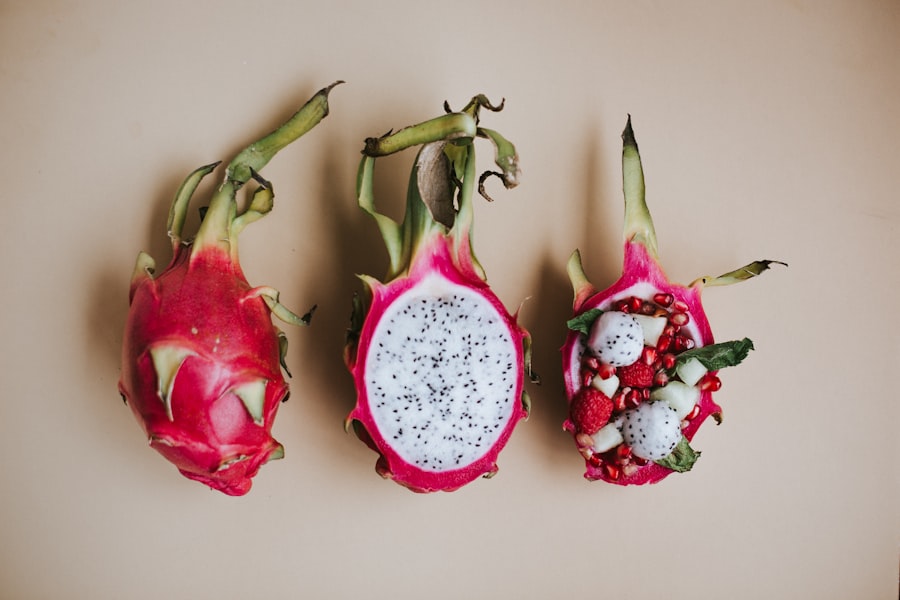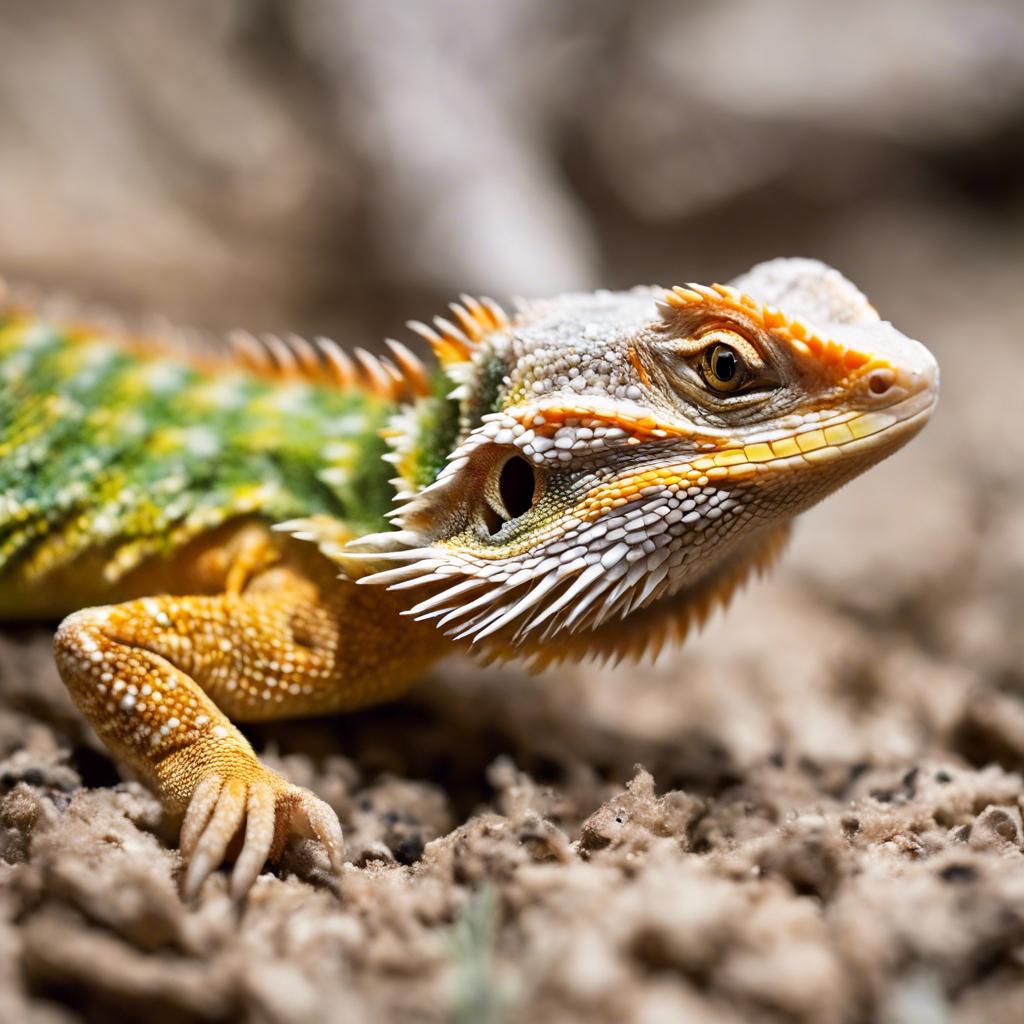Feeding caterpillars to bearded dragons is a topic that has gained attention among reptile enthusiasts and pet owners. Bearded dragons are known for their diverse diet, and it is important to provide them with a balanced and nutritious meal plan. Caterpillars can be a valuable addition to their diet, as they offer a range of nutritional benefits. In this article, we will explore the nutritional value of caterpillars for bearded dragons, the types of caterpillars that are safe for them to eat, how to prepare caterpillars for feeding, and the potential health risks associated with this practice.
Key Takeaways
- Caterpillars are a nutritious food source for bearded dragons.
- Safe caterpillar options for bearded dragons include silkworms, hornworms, and butterworms.
- Bearded dragons should not be fed caterpillars that are hairy or brightly colored.
- Caterpillars should be gut-loaded and dusted with calcium and vitamin supplements before feeding.
- Feeding caterpillars to bearded dragons should be done in moderation and with caution to avoid health risks.
Nutritional Value of Caterpillars for Bearded Dragons
Caterpillars are highly nutritious and can provide a range of essential nutrients for bearded dragons. One of the key benefits of feeding caterpillars to bearded dragons is their high protein content. Protein is crucial for the growth and development of reptiles, as it helps in building and repairing tissues. Caterpillars are also rich in calcium, which is essential for maintaining strong bones and preventing metabolic bone disease in bearded dragons.
In addition to protein and calcium, caterpillars also contain other important nutrients such as vitamins and minerals. They are a good source of vitamins A and C, which are important for maintaining healthy skin, eyesight, and immune function. Caterpillars also provide minerals like iron and magnesium, which play a vital role in various bodily functions.
Types of Caterpillars Safe for Bearded Dragons to Eat
When it comes to feeding caterpillars to bearded dragons, it is important to choose the right types that are safe for consumption. Some safe options include silkworms, hornworms, and phoenix worms. These caterpillars are commercially bred and readily available in pet stores or online. They are raised on a healthy diet and free from any harmful substances.
It is crucial to avoid feeding bearded dragons wild-caught caterpillars, as they may have been exposed to pesticides or other toxins. Certain caterpillars, such as those from the family of moths known as the Lepidoptera, can be toxic or poisonous to bearded dragons. It is best to stick to commercially bred caterpillars to ensure the safety and well-being of your pet.
Types of Caterpillars to Avoid Feeding Bearded Dragons
While there are safe options for feeding caterpillars to bearded dragons, there are also types that should be avoided. Some caterpillars, such as those from the family of moths known as the Saturniidae, can be toxic or poisonous to bearded dragons. These caterpillars often have bright colors or spiky hairs as a warning sign of their toxicity.
Feeding toxic or poisonous caterpillars to bearded dragons can lead to serious health issues, including gastrointestinal problems and organ damage. It is important to do thorough research and consult with a reptile veterinarian before introducing any new food items into your bearded dragon's diet.
Preparing Caterpillars for Bearded Dragons
Before feeding caterpillars to bearded dragons, it is important to properly prepare them. This includes washing and gut-loading the caterpillars. Washing the caterpillars helps remove any dirt or debris that may be present on their bodies. Gut-loading involves feeding the caterpillars with nutritious foods before offering them to your bearded dragon. This ensures that the caterpillars are packed with essential nutrients that will benefit your pet.
To gut-load caterpillars, you can provide them with fresh fruits and vegetables such as leafy greens, carrots, and squash. It is important to offer a variety of foods to ensure a well-rounded diet for the caterpillars. This will ultimately benefit your bearded dragon when they consume the gut-loaded caterpillars.
Feeding Frequency and Serving Sizes for Caterpillars

When it comes to feeding caterpillars to bearded dragons, it is important to consider the frequency and serving sizes. Caterpillars should be offered as part of a varied diet, alongside other food items such as insects, vegetables, and fruits. It is recommended to feed caterpillars to bearded dragons once or twice a week, depending on their age and size.
The serving size of caterpillars should be appropriate for the size of your bearded dragon. As a general guideline, the caterpillars should be no larger than the space between your bearded dragon's eyes. This ensures that the caterpillars are easily digestible and do not pose a choking hazard.
Health Risks Associated with Feeding Caterpillars to Bearded Dragons
While caterpillars can provide nutritional benefits to bearded dragons, there are potential health risks associated with this practice. One of the main concerns is the potential for allergic reactions. Some bearded dragons may have allergies or sensitivities to certain types of caterpillars. It is important to monitor your pet closely after introducing caterpillars into their diet and look out for any signs of allergic reactions such as swelling, difficulty breathing, or skin rashes.
Another health risk is digestive problems. Bearded dragons have sensitive digestive systems, and feeding them unfamiliar or inappropriate foods can lead to gastrointestinal issues such as diarrhea or constipation. It is important to introduce new foods gradually and in moderation to allow their digestive system to adjust.
Signs of Allergic Reaction or Digestive Problems in Bearded Dragons
It is crucial for bearded dragon owners to be aware of the signs of allergic reactions or digestive problems in their pets. Signs of an allergic reaction may include swelling around the face or limbs, difficulty breathing, excessive scratching or rubbing against objects, or skin rashes. If you notice any of these symptoms, it is important to seek veterinary care immediately.
Digestive problems can manifest as changes in bowel movements, such as diarrhea or constipation. Other signs may include loss of appetite, lethargy, or discomfort. If you observe any of these symptoms in your bearded dragon, it is important to consult with a reptile veterinarian to determine the cause and appropriate treatment.
Incorporating Caterpillars into a Balanced Bearded Dragon Diet
To incorporate caterpillars into a balanced bearded dragon diet, it is important to provide variety and moderation. Caterpillars should be offered alongside other food items such as insects, vegetables, and fruits. This ensures that your bearded dragon receives a well-rounded and nutritious diet.
It is also important to vary the types of caterpillars you offer to your bearded dragon. This helps prevent nutritional deficiencies and ensures that they receive a wide range of nutrients. Additionally, it is important to feed caterpillars in moderation and not rely solely on them as the main source of food for your bearded dragon.
Conclusion and Best Practices for Bearded Dragon Care
In conclusion, feeding caterpillars to bearded dragons can provide valuable nutritional benefits when done correctly. It is important to choose safe types of caterpillars, avoid toxic or poisonous ones, and properly prepare them before feeding. Monitoring your bearded dragon for any signs of allergic reactions or digestive problems is crucial, and seeking veterinary care if needed is essential.
Best practices for bearded dragon care include providing a balanced diet that includes a variety of food items, regular veterinary check-ups, and maintaining a clean and suitable habitat. By following these guidelines, you can ensure the health and well-being of your beloved bearded dragon.
If you're wondering whether bearded dragons can eat caterpillars, you might find this article on Reptile Wizard's website helpful. It provides valuable information on the topic and discusses the potential risks and benefits of feeding caterpillars to bearded dragons. To learn more, check out the article here.
FAQs
What are caterpillars?
Caterpillars are the larval stage of butterflies and moths. They are known for their long, segmented bodies and their ability to consume large amounts of plant matter.
Are caterpillars safe for bearded dragons to eat?
It depends on the type of caterpillar. Some caterpillars are toxic and can cause harm to bearded dragons if ingested. It is important to research the specific type of caterpillar before feeding it to your bearded dragon.
What types of caterpillars should be avoided?
Caterpillars that are brightly colored or have spines should be avoided as they are often toxic. Examples include the monarch butterfly caterpillar and the hickory horned devil caterpillar.
What types of caterpillars are safe for bearded dragons to eat?
Caterpillars that are safe for bearded dragons to eat include silkworms, hornworms, and phoenix worms. These caterpillars are high in protein and can be a nutritious addition to a bearded dragon's diet.
How should caterpillars be prepared for bearded dragons?
Caterpillars should be gut-loaded with nutritious foods before being fed to bearded dragons. They should also be dusted with calcium powder to ensure that the bearded dragon is getting enough calcium in their diet. It is important to feed caterpillars in moderation as they are high in fat.

